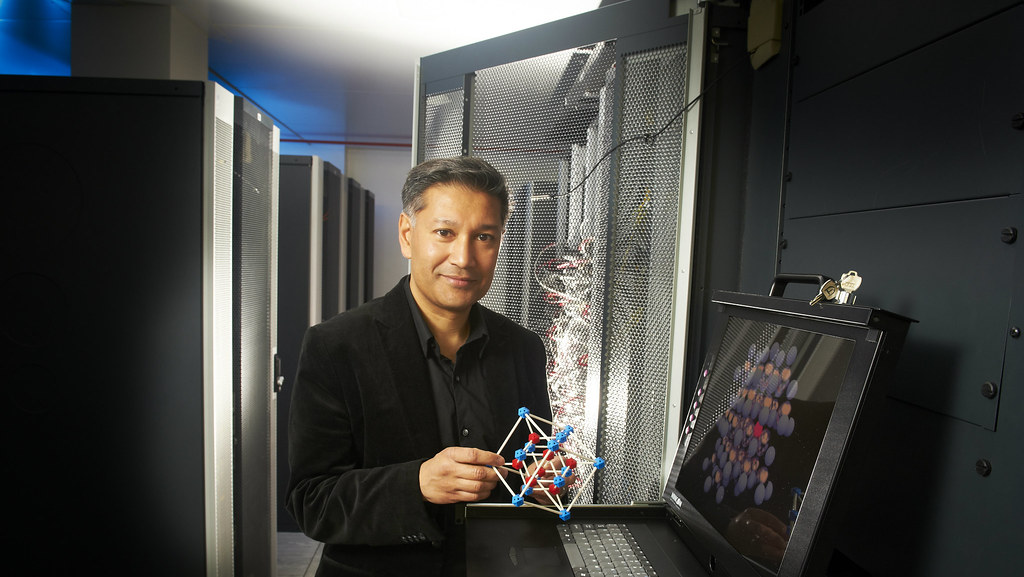The SUPERGEN Energy Storage Hub will address the scientific and technical challenges facing the wide variety of energy storage technologies, and is led by Professor Peter Bruce based at the University of Oxford.
Welcoming the funding Professor Bruce said: “Energy storage is more important today than at any time in human history. It has a vital role to play in storing electricity from renewable sources and is key to the electrification of road transport to help cut carbon emissions.”
The research team at the University of Bath’s Department of Chemistry will be developing new lithium and sodium batteries for storing electricity from renewable sources and for electrification of road transport.
Saiful Islam, Professor of Compuational Materials Chemistry at the University of Bath, said: “The new Hub will aim to improve the performance of greener electrochemical, mechanical and thermal storage devices, and to develop new sustainable materials.
“The Hub will also work with our industrial partners to accelerate the pull through of basic research to scale up and prototyping of future low carbon systems. An important aspect of the programme will be a new generation of trained researchers in the clean energy sector.”
The new consortium consists of chemistry, engineering and materials groups at Imperial College London and the Universities of Bath, Birmingham, Cambridge, Oxford, Southampton and Warwick.
The Hub also has strong involvement of industrial partners including EDF Energy, Jaguar Land Rover, Johnson Matthey, Pnu Power and Sharp.
Professor Islam’s research, which won the Wolfson Research Award (2013-18) from the Royal Society, uses advanced modelling techniques to help understand battery materials on the atomic scale that can be tested in experimental labs.
The University of Bath is a major centre for sustainable energy and chemical research, which includes the Institute for Sustainable Energy & the Environment (I-SEE) and the Centre for Sustainable Chemical Technologies (CSCT).

